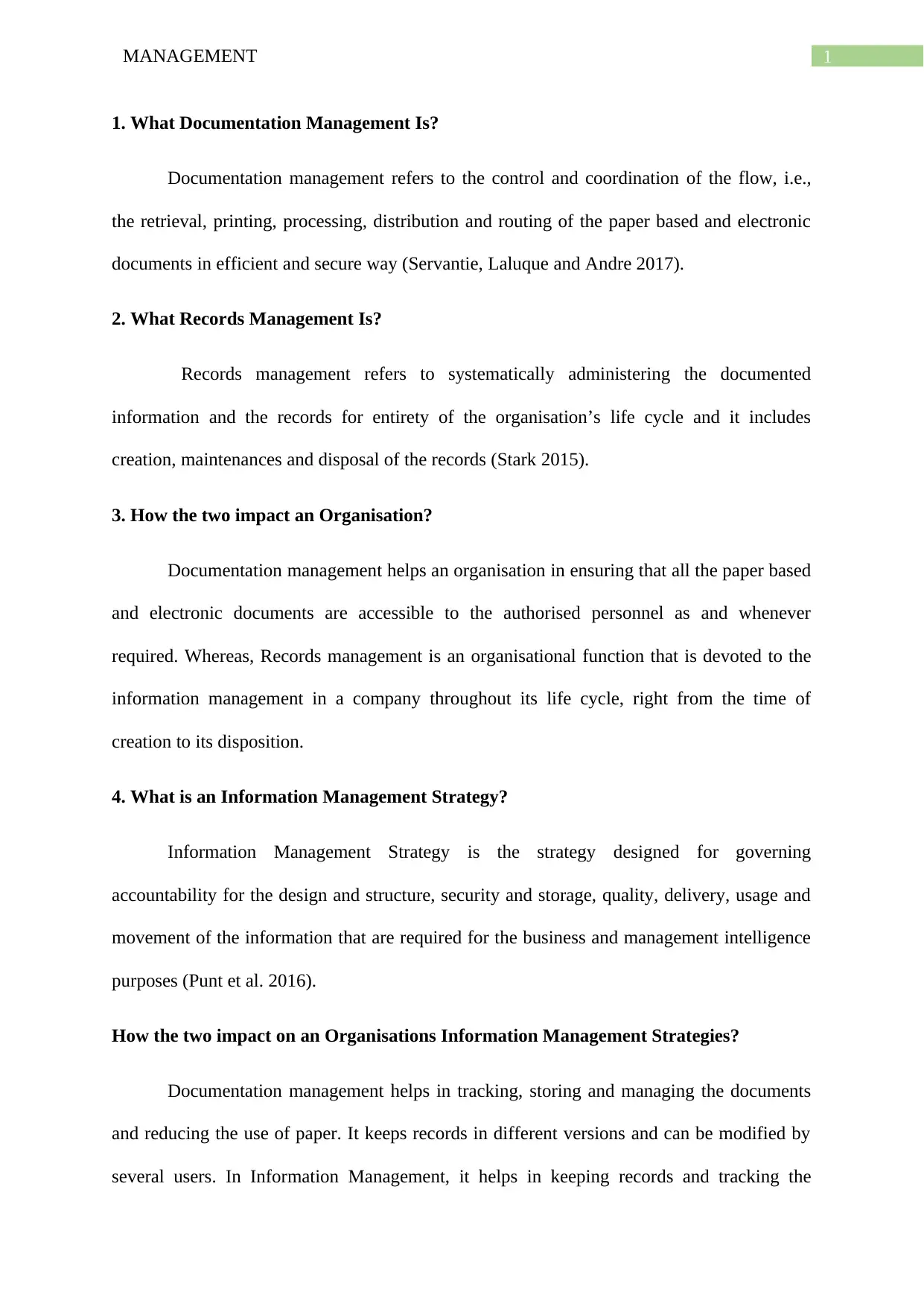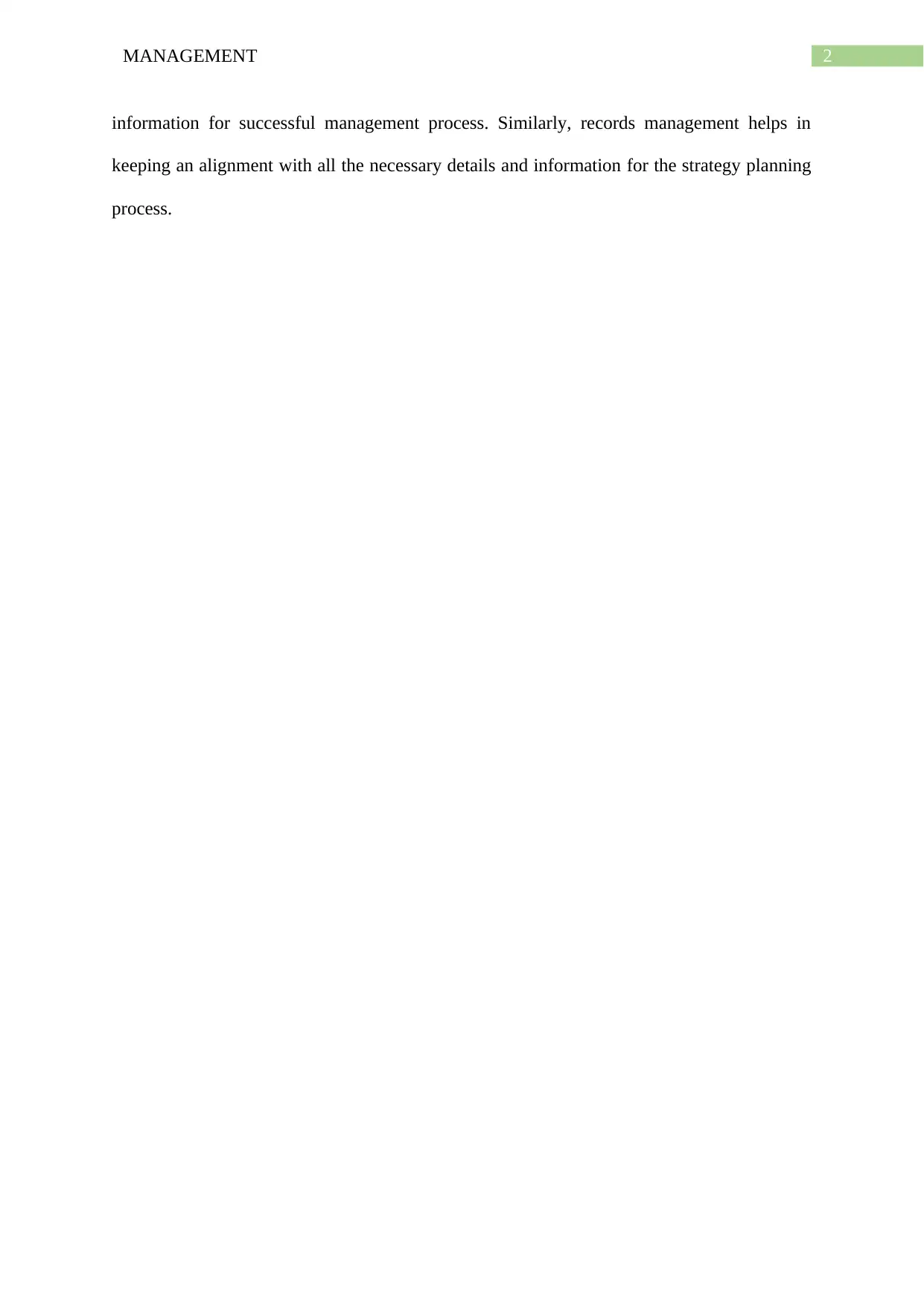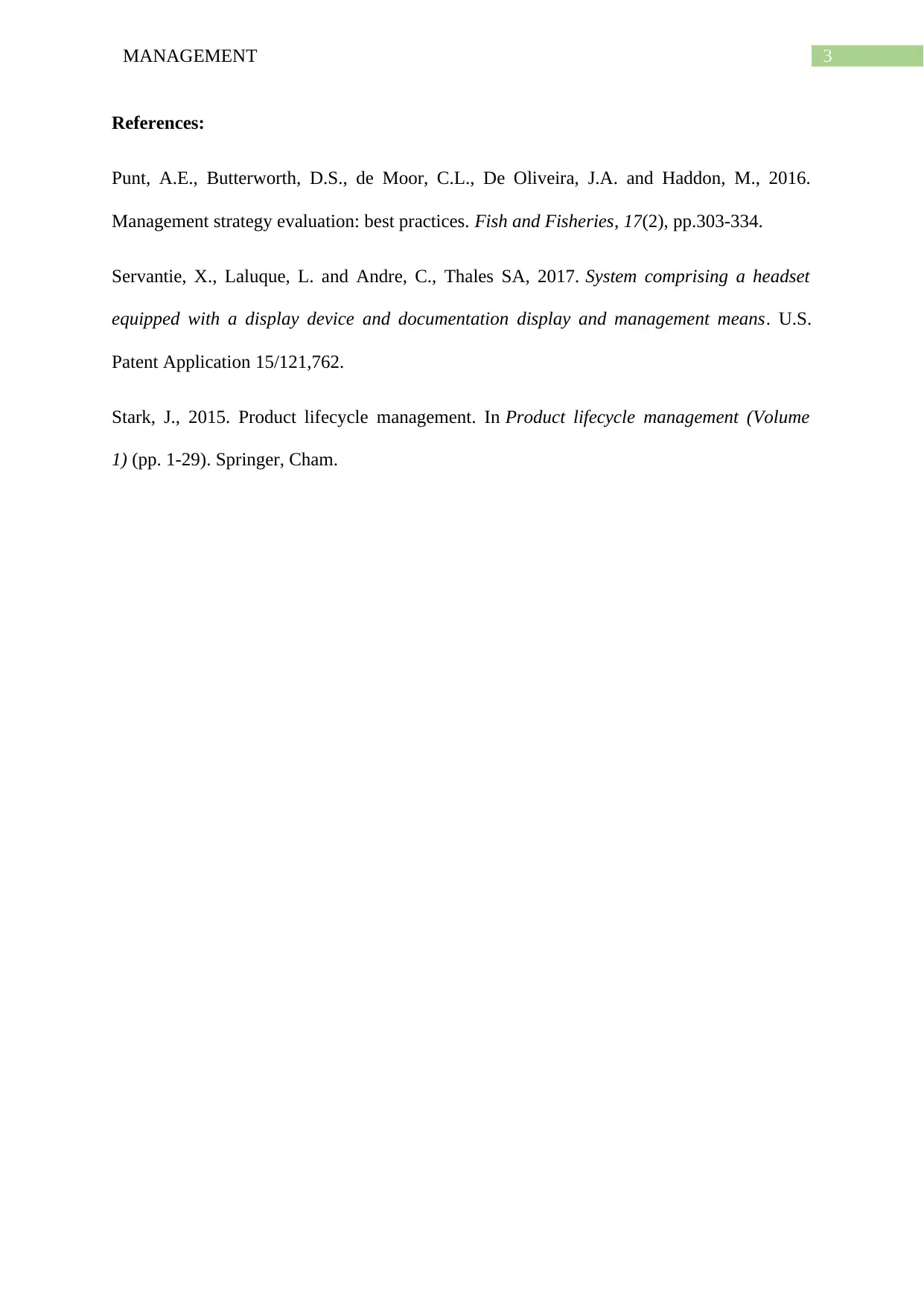Documentation, Records, Information Management: A Comparative Analysis
VerifiedAdded on 2023/04/17
|4
|340
|131
Report
AI Summary
This report examines the concepts of documentation management, records management, and information management strategies and their impact on organizations. Documentation management focuses on the efficient handling of both paper-based and electronic documents, while records management oversees the entire lifecycle of organizational records. The report discusses how these practices influence the accessibility, security, and overall management of information. Furthermore, it highlights the role of information management strategies in governing data for business intelligence and strategic planning. The report also touches on the benefits of these practices in tracking information, reducing paper usage, and aligning with strategic goals. Finally, it offers a comparative analysis of how documentation and records management contributes to the success of an organization.
1 out of 4











![[object Object]](/_next/static/media/star-bottom.7253800d.svg)